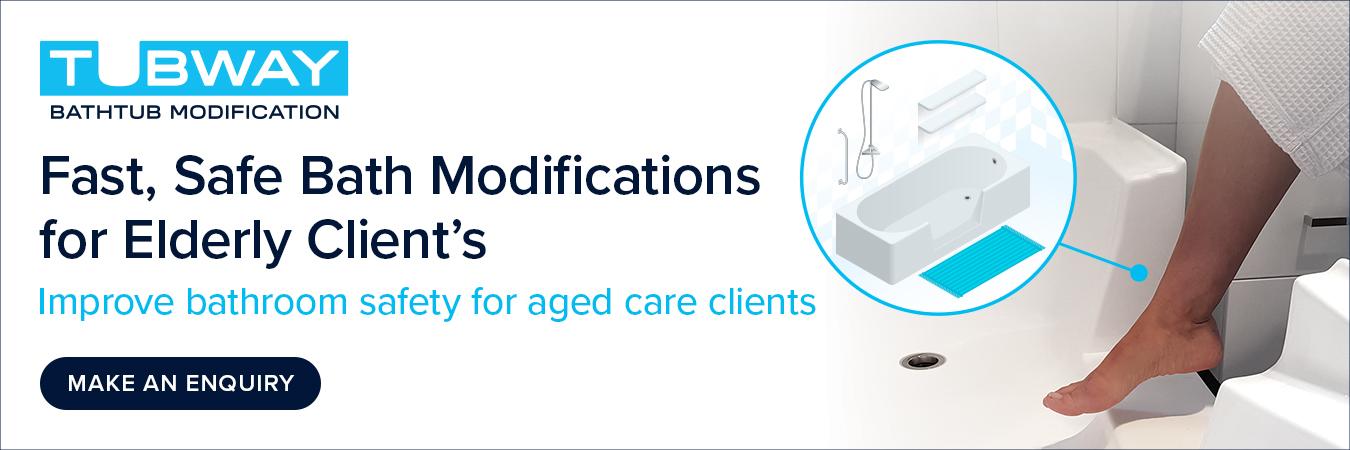
Published: Friday 3 January 2025
Introduction
Occupational therapists are eligible to provide a range of services funded by Medicare. There are currently four Medicare funding programs that can be accessed by occupational therapists. These programs are: 1. M3 – Allied Health Services for Chronic Disease Management 2. M7 – Focused Psychological Strategies Services by Allied Health Providers (commonly referred to as the Better Access to Mental Health Program) 3. M10 – Complex Neurodevelopmental Disorder (such as Autism Spectrum Disorder) and Eligible Disability Services (formerly known as Autism, Pervasive Developmental Disorder or Disability Services and the Better Start and Helping Children with Autism programs) 4. M16 – Eating Disorders Services Two of these programs, Better Access and the Eating Disorders program, are focused on the provision of mental health services and require practitioners to be endorsed by Occupational Therapy Australia (OTA) under the OTA mental health endorsement program.
This document is intended to support practitioners to understand the Medicare programs available to occupational therapists, their eligibility requirements including endorsement, any treatment guidelines associated with each, and where to find additional information.
It is the responsibility of all occupational therapists providing Medicare services to comply with the requirements associated with each funding program. While OTA is responsible for endorsing mental health practitioners and sets the eligibility and ongoing requirements for endorsement, these endorsement-focused requirements are aligned with, but separate to, those imposed by government and other funders of health services. Meeting OTA requirements does not mean that you are complying with requirements associated with Medicare funding programs.
Medicare monitors compliance with program requirements and may audit providers of Medicare-funded services to ensure that they are providing services in line with the guidelines of the individual program. Where providers have not adhered to program guidelines, compliance activities may be undertaken including removing eligibility to provide Medicare services and requiring funds to be repaid. For more information about Medicare compliance activities, including education about billing, please refer to the Medicare compliance page.
Registering to provide Medicare services
All registered occupational therapists are eligible to register as Medicare providers and must do so before accessing Medicare services. You also cannot use another health professional’s provider number and you will require a Medicare provider number for each location in which you deliver services. Additional provider numbers are not required for the purpose of conducting home visits or providing services in a location other than your clinic or consultation rooms.
Please note: if you list your business locality as your home address for your Medicare provider number, the business address (your home address) will be publicly available. Medicare does consider individual requests to discuss the purpose of the provider number, where services are provided to clients and the management of home office details. This can be particularly pertinent to therapists delivering services in the community and external organisations, where the decision has been made not to see clients in the home office of the therapist.
Occupational therapists applying for a Medicare provider number for the first time will need to complete a form. The form can be accessed via the Services Australia Medicare Provider Registration information page.
If you have a registration in more than one health profession (e.g., if you are both a registered occupational therapist and a registered psychologist) then you will also require separate Medicare provider numbers for each registered profession.
For Medicare mental health programs that require endorsement with OTA, practitioners will need to complete the endorsement program before providing mental health services in addition to registering as a Medicare provider. Once you have completed your endorsement with OTA, the organisation will advise Medicare of your eligibility and you will be able to commence providing mental health services.
Overview of Medicare programs for occupational therapists
Occupational therapy services funded by Medicare can only be provided where a referral has been made by an eligible medical practitioner, generally in conjunction with the development of a treatment plan. Practitioners should in all cases ensure that they have a valid referral, including a re-referral where required. It is not enough for a client to be eligible for additional services under the Medicare program, you must also ensure that there is an eligible referral for each service. You may also want to check if the client has used their annual item limits with a different practitioner by using the MBS items online checker (see here for more information).
Each of the Medicare programs for occupational therapists are outlined below, along with relevant links for further information.
M3 – Allied Health Services for Chronic Disease Management
The Chronic Disease Management program is designed to support people with chronic conditions and complex care needs, who are being managed by a GP or medical practitioner and require additional allied health services. A chronic or complex condition is one that would generally last for six or more months, such as diabetes.
Eligibility requirements: Any registered occupational therapist with a valid Medicare provider number can provide M3 services.
Annual limits: Eligible consumers can access five sessions in total per calendar year shared across all eligible allied health professions.
Item number: 10958. Occupational therapists can also provide mental health services under item number 10956 and do not require mental health endorsement.
Rebate: Rebates are set at $58.00. Services must be at least 20 minutes in duration. There is a flat fee regardless of the setting in which the service is provided or the duration of the service. Occupational therapists can charge additional out of pocket costs for this service.
Referral requirements: Consumers must be referred by a GP or medical practitioner and must have either a GP Management Plan and Team Care Arrangements, or a multidisciplinary care plan.
Reporting requirements: Practitioners must provide a written report back to the referring practitioner once they have completed the number of referred services or where they have identified anything related to the client’s health needs of which the referring practitioner should be aware. Practitioners should aim to use the report to provide information back to the referring practitioner to help guide and support their care for the person.
Treatment guidelines or parameters: The Chronic Disease Management program does not prescribe which interventions practitioners can utilise when providing services. Referrers may provide guidance about the services they would like the clinician to provide. Occupational therapists should use their clinical judgement while ensuring that the services they are providing relate to the consumer’s chronic or complex condition and that they are considering the recommendations of the referring practitioner.
More information: More information about the M3 Allied Health Services for Chronic Disease Management program is available on MBS Online.
M7 – Focused Psychological Strategies Services by Allied Health Providers or Better Access to Mental Health services
The Better Access program is designed to provide primary care mental health services to people with an assessed mental disorder. The conditions classified as mental disorders for the purposes of these services are informed by the World Health Organisation, 1996, Diagnostic and Management Guidelines for Mental Disorders in Primary Care: ICD-10 Chapter V Primary Care Version. For the purposes of these items, dementia, delirium, tobacco use disorder and mental retardation are not regarded as a mental disorder. Autism Spectrum Disorder is not considered an eligible mental health disorder unless they also experience an assessed comorbid mental health disorder.
Eligibility requirements: Registered occupational therapists with a Medicare provider number and who are endorsed for mental health practice by OTA can provide M7 services.
Annual limits: Consumers can access up to 10 annual Better Access services in total, shared across all eligible mental health professions. An additional 10 annual group services can also be accessed. Item numbers: 80125, 80130, 80135, 80140 (See also group services (80145-80153); services provided to a person other than the patient (80129, 80131, 80137, 80141, 91194-91195, 91202-91203); telehealth services (91172-91173); phone services (91185-91186))
Rebates: Rebates are $58.00 for sessions lasting 20-50 minutes ($81.65 for short sessions provided outside of the practitioner’s rooms) and $81.90 (or $105.55 for out of rooms services) for services lasting 50 minutes or more. Practitioners can charge additional out of pocket fees for these services.
Referral requirements: The Better Access program is available to people with an assessed mental disorder where the patient is referred by a GP or medical practitioner who is managing the patient under a GP Mental Health Treatment Plan (GP items 2700, 2701, 2715, 2717 or medical practitioner items 272, 276, 281, 282) under a referred psychiatrist assessment and management plan (item 291). Eligible psychiatrists or paediatricians can also refer without an assessment and management plan. Referrals may include the number of sessions, up to the maximum session limit for the course of treatment. Those session limits are:
- Initial course of treatment – a maximum of six sessions
- Subsequent course of treatment – a maximum of six sessions up to the patient’s cap of ten sessions (for example, if the patient received six sessions in their initial course of treatment, they can only receive four sessions in a subsequent course of treatment)
- Additional COVID-19 sessions (only available until 31 December 2022) – a maximum of ten sessions If the referral does not specify the number of sessions, then the occupational therapist can use their clinical judgment to determine the appropriate number of services up to the maximums outlined above. Allied mental health professionals can call the Department of Human Services on 132 150 to check this information, while unsure patients can seek clarification by calling the patient information line on 132 011.
Reporting requirements: Occupational therapists must provide a written report to the referring practitioner at the end of each course of treatment. This report will be considered by the referring practitioner in assessing the patient's clinical need for further sessions after each course of treatment. Practitioners should aim to use the report to provide information back to the referring practitioner to help guide and support their care for the person, as well as outline any requirements for further support.
Treatment guidelines or parameters: The Better Access program requires occupational therapists to use focused psychological strategies to provide treatment for the person with the mental health disorder. These strategies are specified in the legislation for the program and practitioners must ensure that their reports and patient notes show that they are using appropriate treatment modalities from this list. The eligible focused psychological strategies are: 1. Psycho-education (including motivational interviewing) 2. Cognitive-behavioural therapy including behavioural interventions (behaviour modification, exposure techniques, activity scheduling, cognitive interventions and cognitive therapy) 3. Relaxation strategies (progressive muscle relaxation and controlled breathing) 4. Skills training (problem solving skills and training, anger management, social skills training, communication training, stress management and parent management training) 5. Interpersonal therapy (especially for depression) 6. Narrative therapy (for Aboriginal and Torres Strait Islander people) 7. Eye-Movement Desensitisation Reprocessing (EMDR) The Better Access program is not intended to provide access to assessment and reporting services as may be required for access to other funding programs, such as the NDIS. Practitioners should also ensure that their interventions are focused on the mental disorder rather than other comorbid issues that the person may experience.
More information: More information about the Better Access program is available from the Department of Health Better Access to Mental Health Information for Health Professionals and from the Better Access program descriptor page on MBS Online.
M10 – Complex Neurodevelopmental Disorder (such as Autism Spectrum Disorder) and Eligible Disability Services
The Complex Neurodevelopmental Disorder (such as Autism Spectrum Disorder) and Eligible Disability Services program is designed to fund allied health services for children with autism or any other complex neurodevelopmental disorders. A wide range of conditions and disabilities fall within the scope of this program, these have recently been expanded as of 1 March 2023. Current guidelines and eligible conditions are outlined by Medicare on MBS Online (see here). While other Medicare programs typically fund interventions only, occupational therapists are eligible to provide assessment and diagnosis services as well as treatment services under this program.
Eligibility requirements: Registered occupational therapists with a Medicare provider number can provide M10 services.
Lifetime limits: Unlike other Medicare programs for occupational therapy, the M10 program specifies lifetime rather than annual limits. Eligible consumers can access up to eight assessment and diagnosis services, shared across all eligible allied health professions and 20 lifetime treatment services, also shared across all eligible allied health professions.
Item numbers: 82010 (assessment and diagnosis) and 82025 (treatment)
Rebates: Rebates are set at $81.90 for assessment and diagnosis services (item 82010) and these services must be at least 50 minutes in duration. Treatment rebates (item 82025) are also $81.90 and must be at least 30 minutes in duration. There is a flat fee regardless of the setting in which the service is provided. Occupational therapists can charge additional out of pocket costs for this service.
Referral requirements: The referral requirements for the M10 program are relatively complex— children with autism can only be referred for assessment and diagnosis by a paediatrician or psychiatrist who has claimed the relevant Medicare items.
However, GPs along with specialist or consultant physicians can refer children for assessment and diagnosis services using the same item numbers where the child has an eligible disability and where they have claimed the relevant Medicare items. Please see here for more information.
As rebates can only be claimed by occupational therapists if the referring Medicare item has been claimed by the medical professional, practitioners may wish to confirm by calling the provider line on 132 150. Parents and carers can call the patient information line on 132 011.
Interdisciplinary referrals (new addition): If an eligible allied health practitioner seeks to make an interdisciplinary referral of the patient to another eligible allied health professional, this must be undertaken in consultation and agreement with, but without the need for a physical attendance by, the original referring eligible medical practitioner (such as but not limited to, a phone call, written correspondence or secure online messaging exchange). This consultation and agreement should be documented in the patient notes by the eligible allied health practitioner and included in the interdisciplinary referral.
Interdisciplinary referrals will only be valid where the referring eligible medical practitioner’s referral (whose original referral initiated the assessment and assisting with a diagnosis service/contribution to a treatment and management plan) remains valid.
Reporting requirements: A written report must be provided to the referring medical practitioner after assessment and diagnosis service(s) have been provided to the child. Occupational therapists must also provide a written report after completing a course of treatment services, outlining the treatment provided, recommendations on future management of the child's disorder and any advice provided to third parties (e.g., parents, schools).
Assessment and treatment guidelines or parameters: Occupational therapists are not limited in how they can provide assessment and diagnosis or treatment services and should draw on their clinical judgment to determine the appropriate assessment approaches and interventions to use. In determining the assessments that they are undertaking, and how they may formulate their findings, occupational therapists should consider their role in supporting the referring practitioner to complete a diagnosis or develop a treatment plan.
M16 – Eating Disorders Services
The Eating Disorders items are designed to provide services (assessment and management) for patients with a diagnosis of anorexia nervosa and patients with other specified eating disorder diagnoses who meet the eligibility criteria. It is expected that there will be a multidisciplinary approach to patient management through these items.
The eating disorder items incorporate a ‘stepped model’ for best practice care for eligible patients with eating disorders that comprise:
- assessment and treatment planning
- provision of and/or referral for appropriate evidence-based eating disorder specific treatment services by allied mental health professionals and provision of services by dietitians
- review and ongoing management items to ensure that the patient accesses the appropriate level of intervention
Eligibility requirements: Registered occupational therapists with a Medicare provider number and who are endorsed for mental health practice by OTA can provide M7 services. Practitioners are required to have appropriate training, skills and experience in treatment of patients with eating disorders and meet the national workforce core competencies for the safe and effective identification of and response to eating disorders. More information is available at National Eating Disorders Collaboration.
Yearly limits: Unlike the Better Access program, the M16 program has a yearly limit with the 12-month period commencing from the time the eligible medical practitioner has developed the Eating Disorder Plan (EDP). Eligible consumers can access up to 10 initial eating disorder psychological treatment (EDPT) items from mental health occupational therapists and other eligible allied health professions. Up to an additional 30 EDPT items can be accessed in the 12-month period; however, each course of 10 sessions requires a review by the referring practitioner.
Item numbers: 82368- 82375
Rebates: Rebates reflect the Better Access program and vary depending on duration and location. Rebates are $58.00 for sessions lasting 20-50 minutes ($81.65 for short sessions provided outside of the practitioner’s rooms) and $81.90 (or $105.55 for out of rooms services) for services lasting 50 minutes or more. Practitioners can charge additional out of pocket fees for these services.
Referral requirements: In order to be eligible for the eating disorders program, clients must have an eating disorder plan (EDP) developed by either a GP (EDP 90250-90257) or a consultant physician (90260-90263) in the previous 12 months.
As rebates can only be claimed by occupational therapists if the referring Medicare item has been claimed by the medical professional, practitioners may wish to confirm by calling the provider line on 132 150.
Reporting requirements: After each course of treatment, the relevant allied mental health professional is required to provide the referring medical practitioner with a written report on assessments carried out, treatment provided and recommendations for future management of the patient’s condition. A report is required after the first service, as clinically required following subsequent services, and after the final service. Written reports should include any investigations, tests, and/or assessments carried out on the patient, any treatment provided, and recommendations in relation to the future management of the patient's condition.
Eligible treatments: Occupational therapists providing services under the M16 Eating Disorders program must draw on the following mental health care management strategies when providing services to clients referred under this program: 1. Family-based treatment (including whole family, parent-based therapy, parent-only or separated therapy) 2. Adolescent-focused therapy 3. Cognitive behavioural therapy 4. Cognitive behavioural therapy-anorexia nervosa 5. Cognitive behavioural therapy for bulimia nervosa and binge-eating disorder 6. Specialist supportive clinical management 7. Maudsley model of anorexia treatment in adults 8. Interpersonal therapy for bulimia nervosa and binge-eating disorder 9. Dialectical behavioural therapy for bulimia nervosa and binge-eating disorder 10. Focal psychodynamic therapy.
More information: Additional information about the Eating Disorders program is available from the Medicare website. A general program overview is provided in Note MN.16.1 and a description of the eating disorder psychological treatment (EDPT) items that eligible occupational therapists can provide is detailed in Note MN.16.3.





